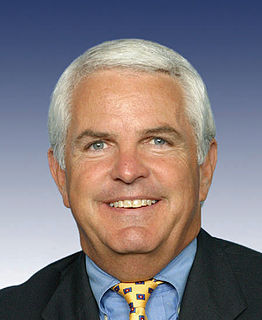Ein Zitat von Todd Park
Unterstützt durch digitale Daten, neue datengesteuerte Tools und Zahlungsrichtlinien, die eine Verbesserung der Qualität und des Werts der Pflege belohnen, zeigen Ärzte, Krankenhäuser, Patienten und Unternehmer im ganzen Land, dass die Pflege intelligenter, besser, zugänglicher und proaktiver ist Der beste Weg, die Qualität zu verbessern und die Gesundheitskosten zu kontrollieren.
Themen zitieren
Zugänglich
über
„Best
Best Way“
– Bessere
Kostenkontrolle
bei der Pflege –
Daten
zur Demonstration der
digitalen
Von Ärzten
motivierte
Unternehmer –
Gesundheitswesen –
Gesundheitsfürsorge
– Gesundheitskosten
– Krankenhäuser
Verbesserung
– Verbesserung –
Mehr
Nation –
Neue
Patienten –
Zahlungsrichtlinien
–
Proaktive
Qualitätsbelohnung
– Intelligentere
unterstützte
Tools –
Value
Way
Verwandte Zitate
Schauen Sie sich andere Länder an, die versucht haben, eine staatlich kontrollierte Gesundheitsversorgung zu haben. Ihre Gesundheitsversorgung ist von schlechter Qualität. Die Welt beneidet unser Gesundheitssystem, weil wir davon überzeugt sind, dass Entscheidungen von Ärzten und Patienten getroffen werden und nicht von Beamten in der Hauptstadt des Landes.
Ein zentraler Gedanke im Affordable Care Act war, dass wir über ein ineffizientes System mit viel Verschwendung verfügten, das nicht auch die Art von Qualität lieferte, die erforderlich war, was Gesundheitsdienstleister oft in die Situation zwang, es für ihre Patienten besser zu machen , aber die finanziellen Anreize waren in die andere Richtung verzerrt ... Wir müssen das Rad nicht neu erfinden; Sie finden bereits heraus, was dazu beiträgt, Infektionen in Krankenhäusern zu reduzieren oder Patienten mit komplizierten Bedürfnissen zu helfen.
Wir haben ein Gebührensystem, das Quantität und nicht Qualität belohnt: gewinnorientierte Pflege statt patientenorientierter Pflege. Deshalb ordnen Ärzte mehr Tests, mehr Eingriffe und mehr Medikamente an – wir konsumieren in den USA tatsächlich mehr verschreibungspflichtige Medikamente als im Rest der Welt zusammen.
Krankenschwestern haben neue und wachsende Rollen. Sie sind Fallmanager, die Patienten dabei helfen, sich im Labyrinth der Gesundheitsversorgungsoptionen zurechtzufinden und Pflegepläne zu entwickeln. Sie sind Patientenaufklärer, die sich auf die Prävention in einer Vielzahl von Umgebungen außerhalb von Krankenhäusern konzentrieren. Und sie sind führend und suchen stets nach Möglichkeiten, ihre Praxis zu verbessern. Da Pflegekräfte den Patienten am direktesten betreuen, haben sie großen Einfluss auf schwerwiegende Behandlungsentscheidungen. Es ist ein sehr riskanter Job. Jeder möchte die beste Krankenschwester für den Job, und das bedeutet die bestausgebildete Krankenschwester.
Die Gesundheitskosten steigen, weil die Verbraucher nicht in den Entscheidungsprozess einbezogen werden. Die meisten Gesundheitskosten werden von Dritten übernommen. Und deshalb ist der tatsächliche Nutzer der Gesundheitsversorgung nicht der Käufer der Gesundheitsversorgung. Und im Gesundheitswesen gibt es keine Marktkräfte.
Tagesbetreuung stellt kein Risiko für Kinder dar, sofern sie von hoher Qualität ist.... Eine minderwertige Tagesbetreuung ist für Kinder überall riskant.... Die Kosten einer minderwertigen Tagesbetreuung werden am Leben der Kinder gemessen. Eine qualitativ hochwertige Tagesbetreuung kostet nur Geld.
Die schnellere Übermittlung von Laborergebnissen an Kinderärzte ergänzt unseren Aktionsplan für die Gesundheitsversorgung, indem wir mehr Patienten dabei helfen, die richtige Pflege zur richtigen Zeit zu erhalten. Es ist eine große Errungenschaft, wenn über zwei Millionen Kinder in ganz Ontario dank der Arbeit von SickKids und eHealth Ontario eine bessere und besser koordinierte Betreuung erhalten.
Ich glaube nicht, dass die Menschen heute, die anfangen, Stimmen zu hören, aufhören zu essen und zu schlafen und Amok laufen, wahrscheinlich eine gute Behandlung bekommen werden. Mehr Wissen, bessere Diagnosemöglichkeiten, bessere Medikamente mit weniger Nebenwirkungen können nicht die Tatsache ausgleichen, dass die meisten Patienten von Ärzten, Therapeuten und Krankenhäusern behandelt werden, die unter Zwängen und Anreizen arbeiten, die die Nichtbehandlung belohnen. Nicht-Krankenhausaufenthalt, keine Therapie, keine Nachsorge, keine Pflege. „Lost to follow-up“ ist das beste Ergebnis, auf das ein Krankenversicherer hoffen kann.

































